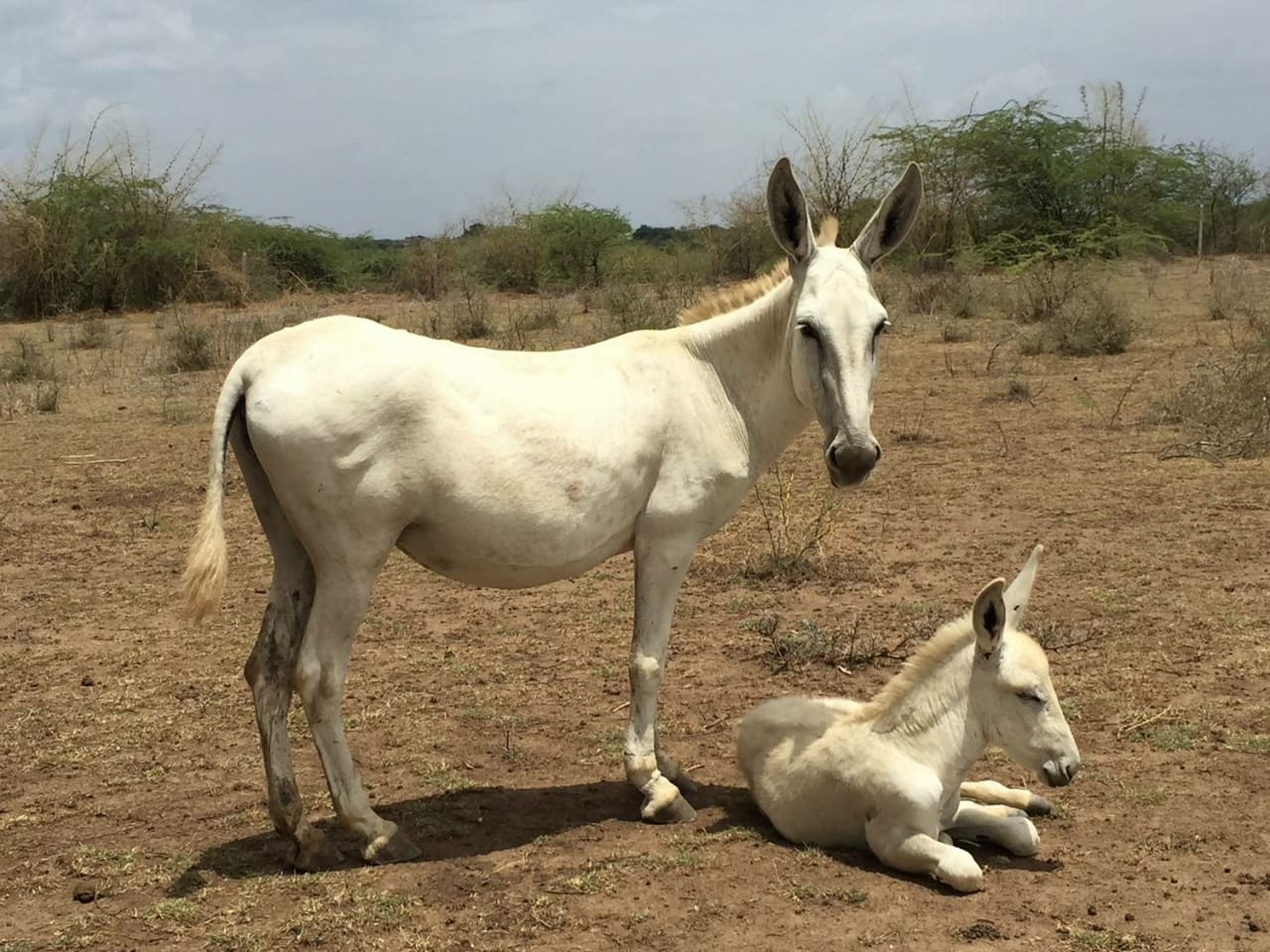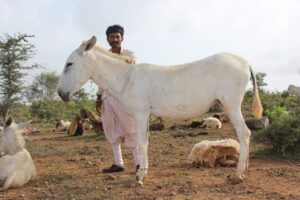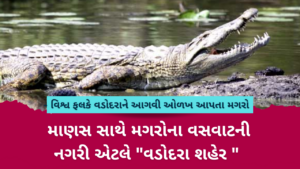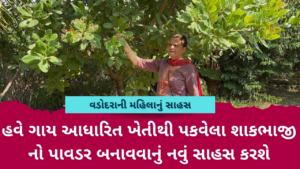At the national level to identify breeds, the Department of Animal Genetics and Breeding (Animal Husbandry), Veterinary College, Anand Krishi University, studies the unidentified breeds of domestic animals.
In the last six-seven years, the department has nationally recognized the Kutchi-Sindhi of horses, Panchali of sheep, Kahmi of goats, Dagri of cows, and Kharai breeds of camels.
Halari and Kutchi are the two breeds in the list of donkeys. To identify and register these breeds the Sahajivan Trust, in Kutch has assisted the department.
After studying these breeds, the report was sent to the National Bureau of Animal Genetic Resources (NBAGR) at Karnal (Haryana) through the Animal Husbandry Department of the state government, which has identified seven new breeds in the state.
Rajasthan with 24 breeds of cattle, Gujarat has become the second-largest state in the country. Halari donkey that stands apart from other donkeys is recently recognized. It is a full white tall gigantic and tough breed. There was only one breed recognized in the country but with the addition of Halari and Kutchi donkey breeds, it has become the second and third breed in the country.
Donkeys are used to transport bricks and clay, as well as to lift goods in mountainous areas, and people of many castes involved in this business. But Halari donkeys are generally reared by the Rabari shepherds in Halar region in Jamnagar, Devbhoomi Dwarka, Morbi, and Than region. Since this caste people migrate with their sheep and goats, they follow the donkey to move their goods and households from one place to another. But the donkey breed is not only seen as a carrier but also as a source of health-enhancing medicine. In old days in the village, a child would be given donkey’s milk in case of a bad cough.
It is said that Queen Cleopatra of Egypt used to bathe in the milk of a female donkey. It is believed that the medicinal value in the milk works as enhancing the beauty and help people to look young. Therefore, according to a report, around Rs. 7000 / – per liter is the price of female donkey’s milk abroad.
Even in India, some cosmetics manufacturers have tried to get milk from donkey breeders who are aware of the fact and are interested. Besides, the state government has also started a breeding center for Halari donkeys at Chanasma and 34 donkeys have been reared. The National Horse Research Center at Hisar has also started breeding Halari donkeys. Such institutes can work for medicinal testing of donkey’s milk.
But now with the initiative of a big organization like Amul and the state government to start camel milk collection and processing and production of products, just as camel milk chocolate has been sold at a higher price, so it will not be a surprise to get soap, shampoo and other cosmetics from donkey’s milk in the near future. People are more likely to buy these organic cosmetics even at a higher price. Only a handful of surviving donkey breeders (about 1100) will be able to get a big and new source of income and improve their standard of living if such a scheme succeeds.






